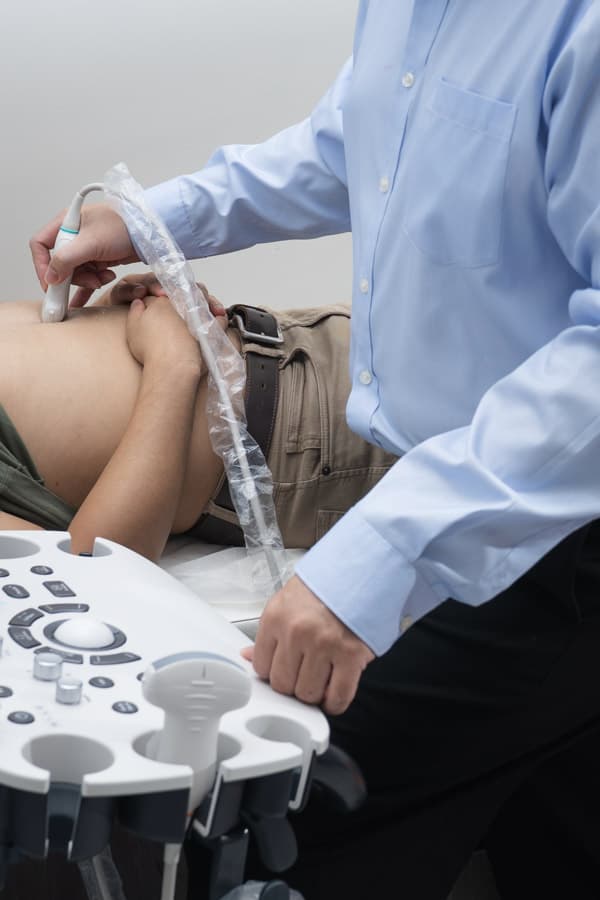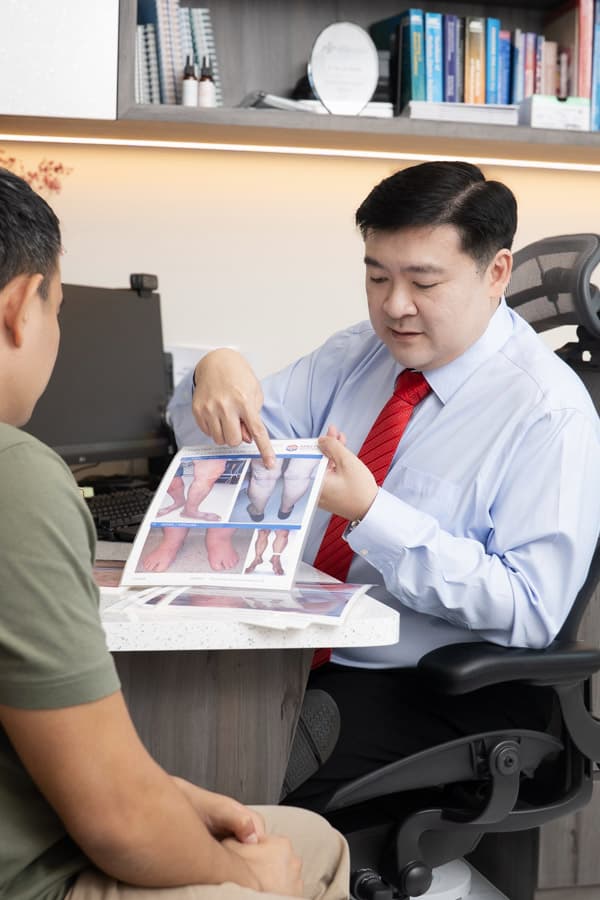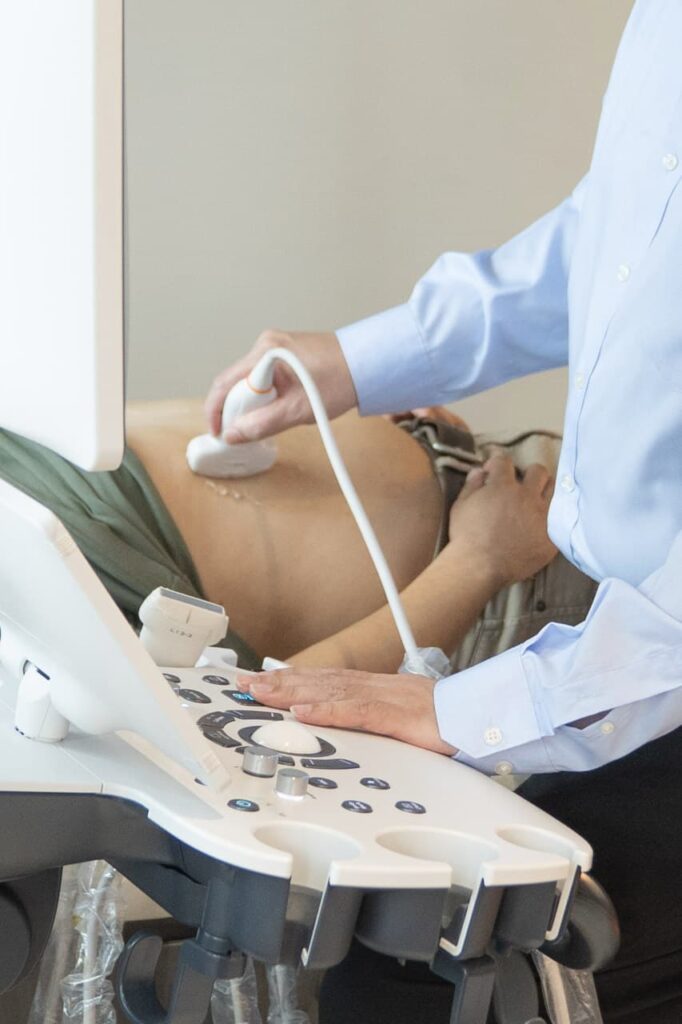We provide minimally invasive treatment for vascular and wound-related conditions, prioritising safety and reliable outcomes.
Dr Tay Jia Sheng is a vascular and endovascular surgeon with extensive experience in vascular and chronic wound care.
He is actively involved in clinical practice and contributes to the adoption of treatment developments across the region.
With a patient-first approach, he provides safe, personalised care to support vascular health, promote healing and reduce risks of complications.
We understand that vascular issues can affect many aspects of daily life and we’re here to support your every step of the way.



Medical Director, Senior Consultant Vascular & Endovascular Surgeon
MBBS (Singapore), MMed (Surgery), MRCSEd (UK), FRCS (Gen Surg, Edin), FAMS (Surgery)
Dr. Tay Jia Sheng is a vascular specialist with over 20 years of clinical experience. His proficiency is shaped by an extensive public health tenure, during which he at one point managed nearly a quarter of vascular cases nationally. He remains active in clinical practice and contributes to treatment developments across the region.
Dr. Tay cares for patients with varicose veins, chronic wounds, aortic aneurysms, DVT and blocked arteries—providing minimally invasive solutions that support recovery and reduce complication risks.
His expertise includes EVAR, TEVAR, minimally invasive vein harvesting, and procedures such as Atherectomy, Intravascular Ultrasound, Lithotripsy and catheter-based clot removal.
Prior to private practice, Dr. Tay was the founding surgeon of the Vascular & Endovascular Service at Sengkang General Hospital, and today continues as an active educator and clinical leader with faculty roles at NUS and NTU. He has received multiple teaching awards, including the Dean’s Award and the Best Educator Award from Eastern Health Alliance.
Committed to evidence-based practice with a focus on safety and reliable outcomes.
If these symptoms persist or worsen, it may be time to see a vascular specialist to check for underlying circulatory problems.
While vascular-related symptoms may seem minor at first, it’s important to recognise the warning signs. Without treatment, they can lead to more serious health issues over time.

We’re here to help - schedule a consultation or second opinion
Here we answer some of the frequently-asked questions about vascular conditions and treatment information.
Diagnosis typically involves a physical examination and non-invasive tests such as duplex ultrasound, ankle-brachial index (ABI) or CT/MR angiography. These help assess blood flow and identify blockages or vein damage.
Common signs include cold feet, numbness, leg cramps when walking, slow-healing wounds, skin discolouration or swelling. These may indicate underlying arterial or venous issues that require medical attention.
In some cases, yes—especially if you have risk factors such as diabetes, high blood pressure, tobacco use or a family history of aneurysms or vascular disease. Screening helps detect issues early, before complications arise.
Not always. Many vascular conditions can be managed with lifestyle changes, medication, or minimally invasive procedures such as angioplasty, stenting or laser vein treatment—often done as day surgery.
No referral is needed—you can book an appointment directly with our clinic. If you have previous scan or test results, please bring them along for your consultation.
Yes. We welcome second opinions. In some cases, patients visit us for a third or even fourth opinion when facing complex or unresolved vascular conditions.
Procedures with a surgical code are typically eligible for insurance claims and MediSave use. Our staff will assist you with the necessary paperwork and claims process.
Dr Tay Jia Sheng is an accredited specialist on various insurance panels and practises at several private hospitals in Singapore, including:
We work with a wide range of insurance providers and accept various Integrated Shield Plans. If your insurer isn’t listed, our team can still guide you through claims, pre-authorisation and MediSave support for a hassle-free process.






Get in touch to arrange your consultation. We aim for minimal wait times and same-day availability where possible.